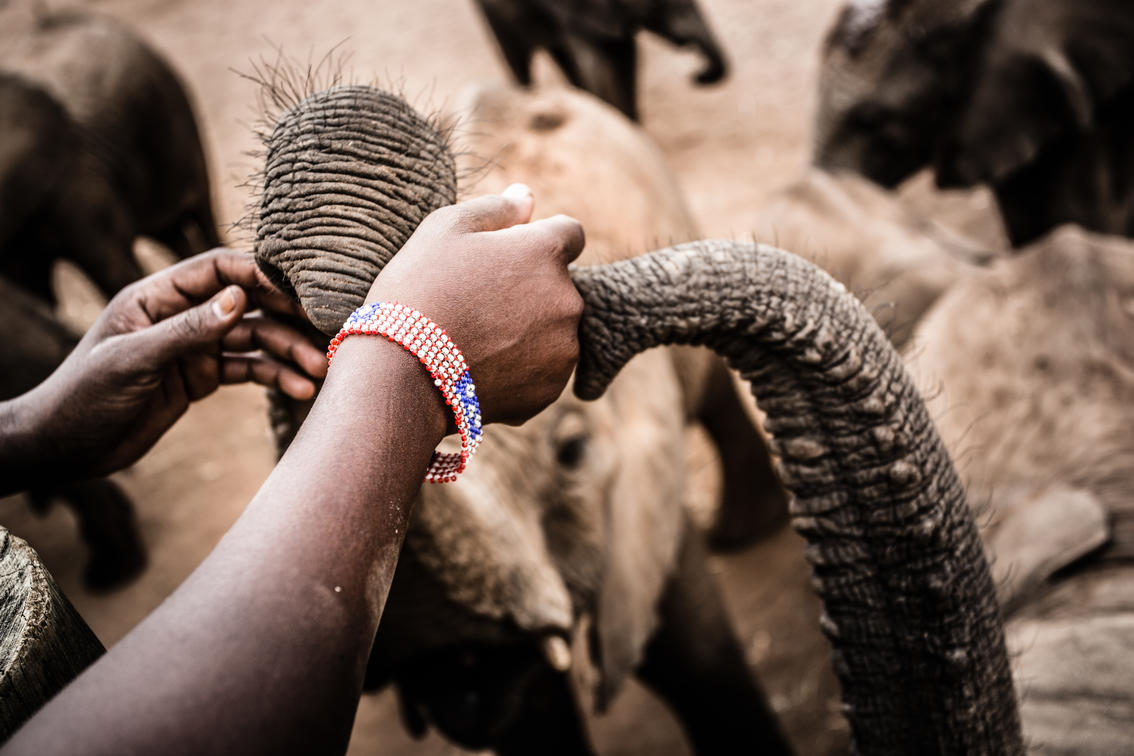This website uses cookies so that we can provide you with the best user experience possible. Cookie information is stored in your browser and performs functions such as recognising you when you return to our website and helping our team to understand which sections of the website you find most interesting and useful.
The Grumeti Fund June Updates
Rescuing a Gentle Giant: Treating and Healing a Wounded Elephant

Elephants are easy animals to love: they are the largest terrestrial mammal in the world, considered highly intelligent, and are thought to be so emotionally connected that their families are often compared to ours. Our appreciation for these gentle giants makes their endangerment even more heart breaking, and unfortunately despite their many accolades, elephants are not immune to the dangers humans pose to wildlife.
Earlier this month, a safari guide spotted an elephant bull with swelling on his rear leg, which he recognised as an indicator of snare-related injury. Immediately, Grumeti Fund’s Conservation Management team deployed to the bull and coordinated with Tanzania Wildlife Authority veterinarians.

Once on site, the team realized that they recognized the injured elephant. In March 2023, they had responded to a call about the same elephant that had a wire snare attached to its rear leg. At the time, the Conservation Management team and TAWA successfully removed the snare before releasing the bull.

When they recognised that it was the same elephant, the team concluded that the previous snare wound was likely infected and in need of additional veterinary treatment. They devised a treatment plan before TAWA veterinarian Dr. Mwakyusa administered a tranquilizer to the injured elephant. The Conservation Management team and TAWA then worked together to keep the elephant comfortable while they disinfected the wound and injected it with antibiotics to fight infection. Afterward the veterinarian awoke the elephant with an anti-sedative injection that sent him on his way. These procedures are risky and stressful. Shedding light on the treatment procedure Dr Mwakyusa emphasized the sensitivity of treating wounded wildlife -big and small. It also demonstrated the critical importance of teamwork in conservation, as we so often wander into dangerous and high-stakes scenarios to protect this invaluable ecosystem and its many, lively residents. Speaking about the significance of treating wildlife, section manager Makuru exolained: By treating injured wild animals, we reduce their suffering, restore their ability to walk and ultimately preserve and maintain the natural balance in the Serengeti ecosystem.
When an animal is suffering from human-induced injuries, the Conservation Management team intervenes. Bushmeat poaching is one of the largest threats to wildlife within the protected area, and often, poacher’s tactics lead to severe injury to wildlife. Snare poaching, or the use or metal wires that tighten when an animal walks through them is the most common cause of human-induced wildlife injury in the concession. These snares tighten, eventually creating deep painful cuts on the animal, leaving it more susceptible to predation, infection, malnutrition, and death. In response, the Conservation Management team, along with Government partners, are constantly called upon to remove snares that have grievously injured animals.

Getiga Chiwa is a dedicated member of the Grumati Fund, having spent 20 years protecting wildlife and the environment in the concession. Throughout his tenure, he has witnessed significant changes in conservation. During his time with the organization, Getiga has achieved personal milestones, including building a home for his family and providing his children with education opportunities.




